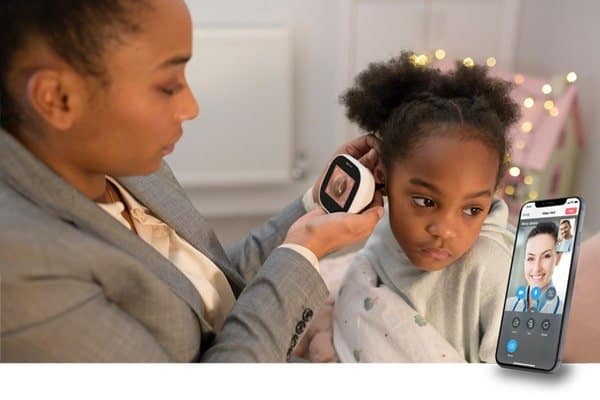Tyto Care has received a European approval for an artificial-intelligence-powered add-on to its digital stethoscope system, allowing the device to identify certain lung sounds such as wheezing and assist clinicians in remotely diagnosing respiratory conditions.
The CE mark covers the web-based software module as a separate medical device. It is designed to analyze lung sounds recorded by the company’s off-the-shelf TytoCare Stethoscope, which also has a CE mark and clearance from the FDA.
The telehealth system is part of a handheld, primary care exam kit that allows users to inspect the lungs, heart, skin, ears, throat and abdomen while also measuring pulse rate, body temperature and blood oxygen levels.
“We are confident that this will enhance telehealth usage in the European market and will help deliver improved outcomes in detecting wheezes and in the future other respiratory abnormalities,” TytoCare co-founder and CEO Dedi Gilad said in a statement.
The company is also seeking an FDA clearance for the AI program, which was trained and tested on lung sounds collected from Tyto Care’s database of more than 450,000 real-world clinical exams, with assistance from pulmonologists and general practitioners.
Tyto Care first launched its initial piece of AI-powered diagnostic support software in late 2020, following a regulatory approval from Australia’s Therapeutic Goods Administration. The system began rolling out through partnerships with Australian telehealth companies, health systems and insurance providers.
In 2021, the company announced that it had raised a total of $100 million through an extended series D funding round, with backing from Insight Partners, Tiger Global Management, Qumra Capital, Qualcomm Ventures, Olive Tree Ventures and Shenzhen Capital Group.
“The pandemic significantly accelerated telehealth awareness, adoption and utilization worldwide, and current advances in AI-powered home-based clinical diagnoses are making virtual care even more personalized and effective for a wider population as well as more use cases,” Gilad said in a March 2021 statement reporting the funding round.

